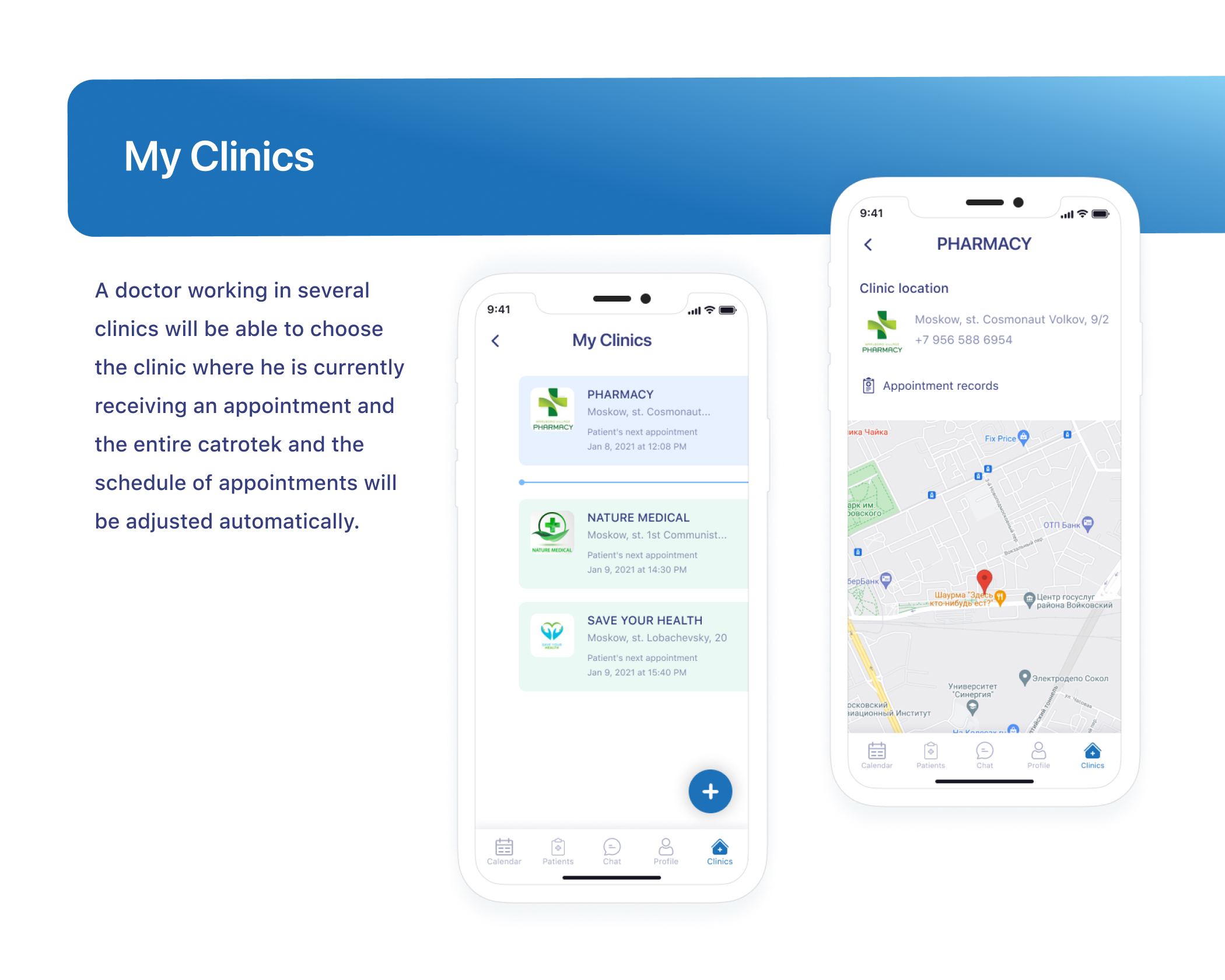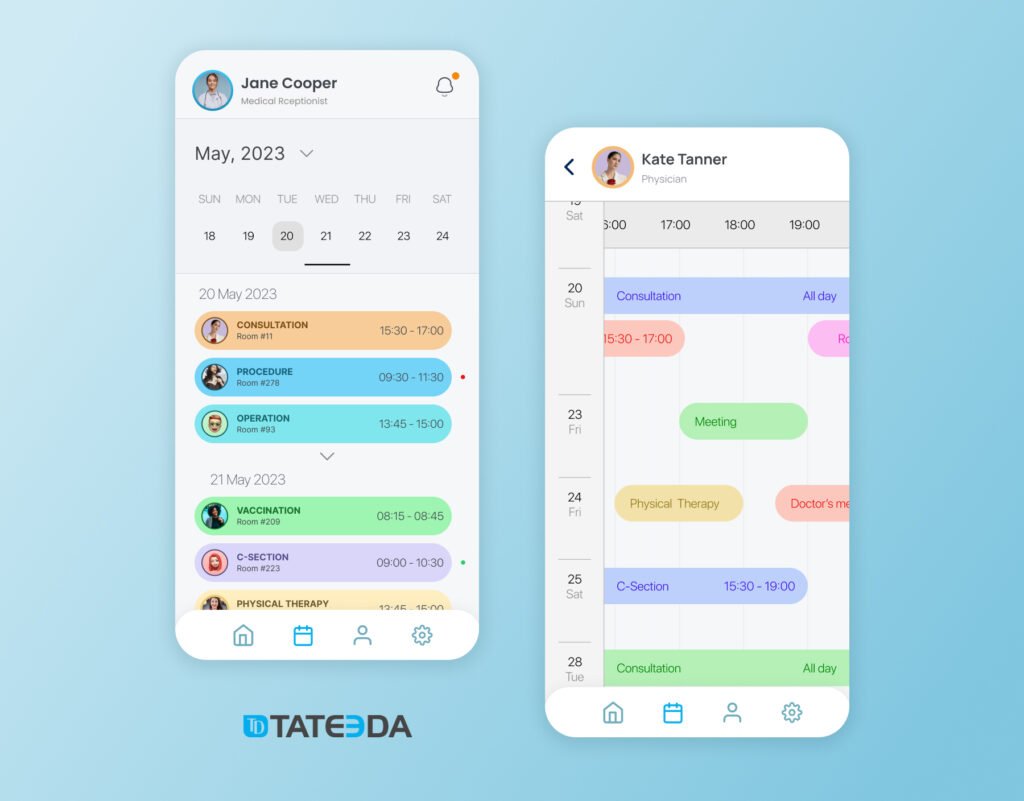How a Mobile App for Clinics Improves Interaction Between Doctors and Patients
How a Mobile App for Clinics Improves Interaction Between Doctors and Patients
Blog Article
The Future of Health Care: Why Clinics Required a Mobile Application Today
As the medical care landscape continues to advance, centers encounter placing pressure to adjust to client expectations for better convenience and access. The integration of mobile applications can work as a vital strategy for improving individual engagement and enhancing procedures. By leveraging modern technology to boost interaction and provide important services, clinics not just deal with current needs but likewise place themselves for future success. Nonetheless, the effects of this change prolong past plain functional efficiency; they might redefine individual relationships and care delivery in extensive methods. What might this change resemble for both individuals and centers?
Altering Client Assumptions
As the landscape of health care develops, client assumptions are going through a substantial improvement. Today's people are significantly looking for benefit, ease of access, and customized treatment.
Moreover, individuals are coming to be extra educated and empowered, usually researching therapies and conditions online prior to assessments. This enhanced recognition is combined with a need for openness in health care procedures, including expense estimates and treatment alternatives. Therefore, companies are obliged to adjust by embracing electronic tools that enhance the individual experience.
The assumption for effective and timely interaction has actually never ever been greater, with several clients thinking about responsiveness an important element of high quality care. mobile app for clinics. In this developing landscape, medical care companies should identify these changing expectations and take advantage of mobile applications to foster an extra patient-centric strategy, making certain that they not just meet but surpass the standards set by today's educated customers
Enhancing Individual Interaction

Mobile applications facilitate interaction in between patients and medical care carriers, allowing real-time appointment organizing, suggestions for drug adherence, and straight messaging attributes. These performances not just improve benefit however additionally construct a sense of accountability among individuals. In addition, mobile apps can provide academic material tailored to private demands, aiding clients better understand their problems and therapy choices.
The combination of gamification elements within medical care apps can likewise encourage patients to take part in healthy behaviors, reinforcing favorable lifestyle modifications. By tracking development and fulfilling achievements, people are most likely to stay dedicated to their health objectives. Inevitably, enhancing individual involvement through mobile applications leads to boosted wellness end results, higher individual fulfillment, and a much more joint medical care experience. Facilities that prioritize this facet will likely see a considerable effect on the quality of care provided.
Streamlining Clinic Procedures
Improving center procedures is important site web for improving process efficiency and maximizing patient care. The execution of mobile applications can considerably minimize administrative concerns, enabling medical care suppliers to focus extra on individual interactions. By automating consultation scheduling, client check-ins, and invoicing processes, clinics can decrease wait times and improve total functional effectiveness.
Mobile apps likewise help with real-time accessibility to patient documents, making it possible for medical care professionals to make enlightened decisions rapidly. This immediacy not only boosts the high quality of treatment yet also reduces the likelihood of errors related to misplaced or outdated info. Leveraging mobile innovation supports a more well organized technique to handling patient follow-ups and therapy plans, ensuring that no crucial steps are ignored.
This permits for timely replenishment and helps avoid interruptions in individual treatment due to stock shortages. By integrating these capabilities right into their day-to-day operations, centers can create a more effective and cohesive atmosphere, inevitably leading to boosted patient outcomes and satisfaction.
Improving Interaction Networks
Efficient interaction is regularly pointed out as a foundation of quality healthcare shipment. In today's busy clinical setting, mobile applications can substantially improve interaction networks in between centers, people, and health care carriers. By incorporating mobile applications into their operations, facilities can promote real-time communications, making sure that individuals receive prompt information concerning their appointments, examination outcomes, and therapy plans.
Mobile apps also encourage clients to communicate directly with their healthcare teams with safe and secure messaging attributes. This direct line of communication fosters a sense of involvement and enables prompt information of worries, which can result in far better adherence to treatment methods. Additionally, push notices can advise individuals of upcoming appointments or medicine timetables, decreasing no-show rates and boosting overall health outcomes.

Staying Competitive in Medical Care
In a quickly progressing medical care landscape, organizations need to prioritize advancement and flexibility to preserve a competitive side. The assimilation of mobile applications into healthcare solutions is no longer optional; it is necessary for centers intending to improve patient involvement, improve procedures, and boost overall solution delivery.
As people significantly depend on digital systems for health and wellness click here for info monitoring, facilities that fail to adopt mobile modern technology threat falling back. A properly designed mobile application can provide attributes such as consultation organizing, telemedicine appointments, and accessibility to medical documents, offering patients with comfort and promoting loyalty.

Rivals are also purchasing mobile solutions, so remaining in advance requires continuous enhancement and remaining informed regarding technological innovations. Centers should not only execute mobile applications however also take part in normal updates and improvements. Eventually, the successful combination of mobile modern technology will identify forward-thinking medical care companies and established the benchmark for patient-centric treatment in an electronic globe.
Conclusion
In final thought, the assimilation of mobile applications in facilities is vital to attend to the advancing landscape of individual expectations. Ultimately, the critical implementation of mobile apps stands for a critical step toward delivering personalized and accessible health care, thereby satisfying the demands of today's empowered individuals.
Eventually, boosting person involvement with mobile applications leads to enhanced health and wellness outcomes, better client complete satisfaction, and a much more joint health care experience.Mobile apps additionally promote you could check here real-time accessibility to person documents, enabling health care professionals to make enlightened decisions rapidly. In today's fast-paced clinical setting, mobile applications can substantially boost interaction channels between centers, individuals, and medical care service providers.Mobile apps also encourage individuals to interact directly with their medical care teams with safe and secure messaging attributes. Eventually, the tactical application of mobile apps represents a vital action towards providing personalized and obtainable health care, therefore fulfilling the requirements of today's empowered people.
Report this page